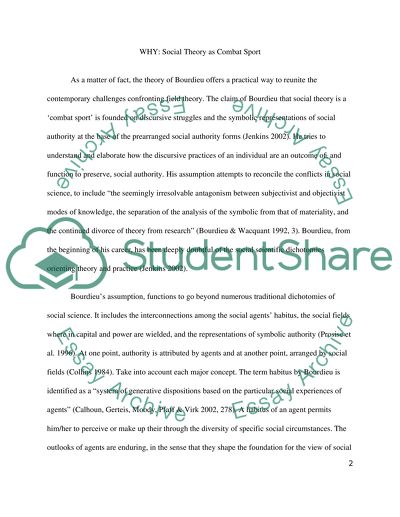Cite this document
(“Rethinking Pierre Bourdieu Essay Example | Topics and Well Written Essays - 3750 words”, n.d.)
Retrieved from https://studentshare.org/sociology/1573319-how-and-why-did-pierre-bourdieu-describe-social-theory-as-a-combat-sport
Retrieved from https://studentshare.org/sociology/1573319-how-and-why-did-pierre-bourdieu-describe-social-theory-as-a-combat-sport
(Rethinking Pierre Bourdieu Essay Example | Topics and Well Written Essays - 3750 Words)
https://studentshare.org/sociology/1573319-how-and-why-did-pierre-bourdieu-describe-social-theory-as-a-combat-sport.
https://studentshare.org/sociology/1573319-how-and-why-did-pierre-bourdieu-describe-social-theory-as-a-combat-sport.
“Rethinking Pierre Bourdieu Essay Example | Topics and Well Written Essays - 3750 Words”, n.d. https://studentshare.org/sociology/1573319-how-and-why-did-pierre-bourdieu-describe-social-theory-as-a-combat-sport.


